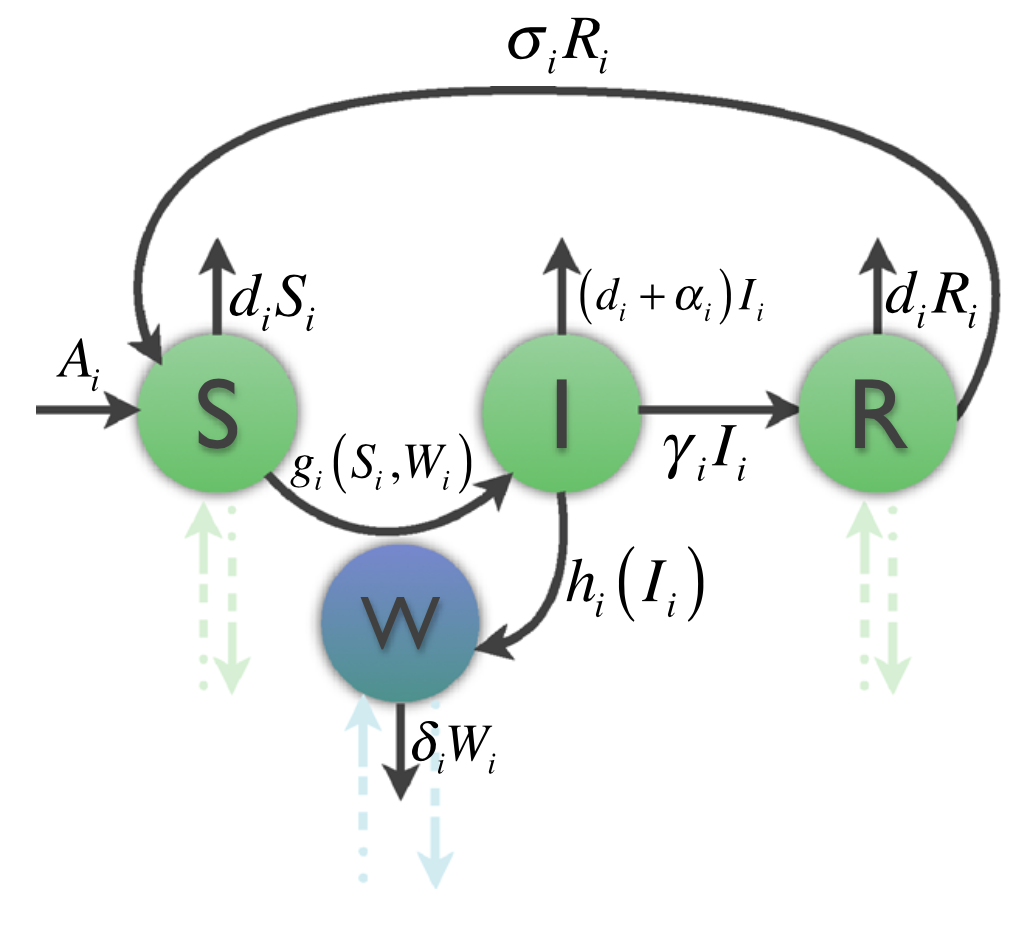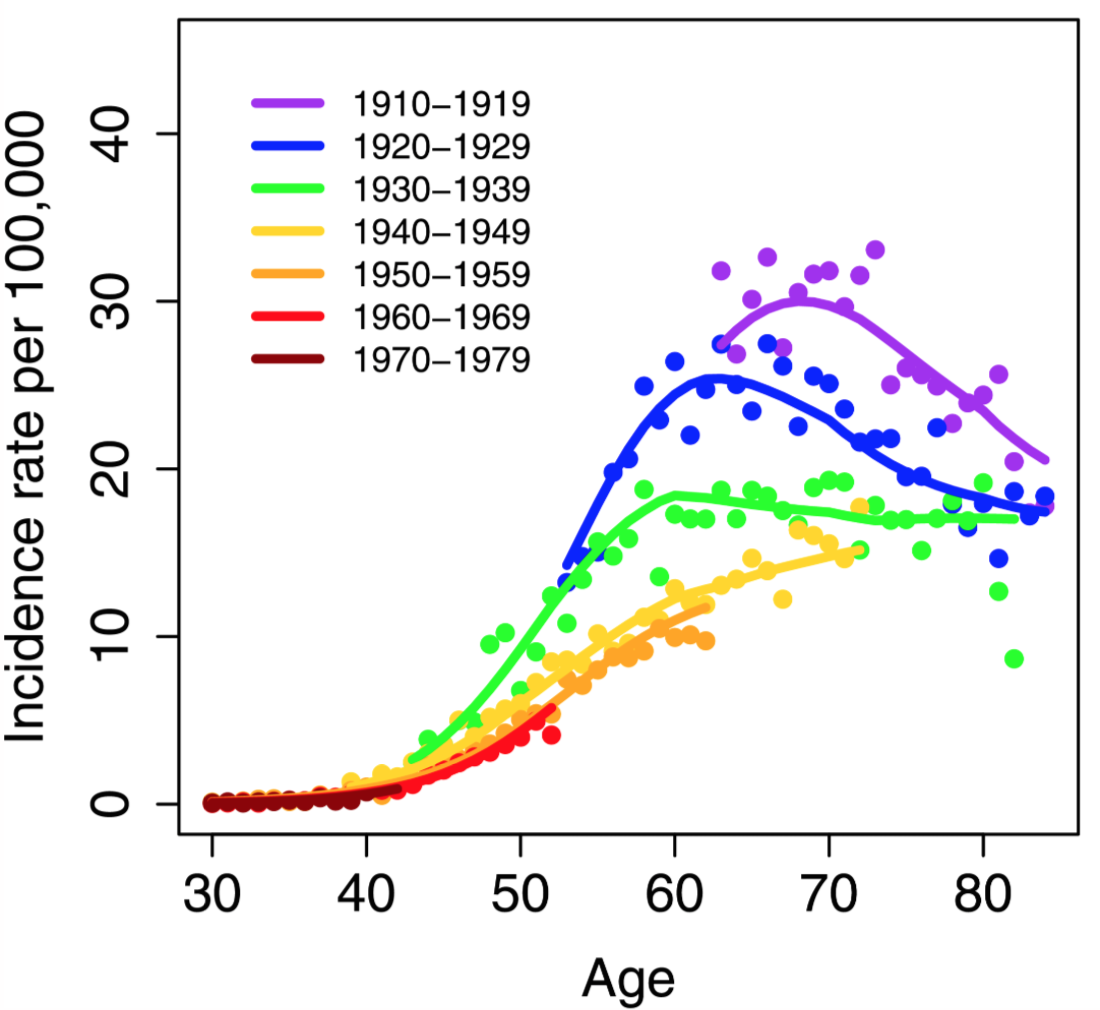Research & Projects
The Epimath Lab research program is centered on using and developing parameter estimation and identifiability techniques to build models of disease dynamics at a variety of scales. We blend mathematics, statistics, and epidemiology to understand transmission dynamics, inform optimal intervention strategies, and improve forecasting.
Much of my group’s work has been in building multi-scale models infectious diseases, e.g. crossing scales to consider the within-host and between host effects of disease (as in HPV and oropharyngeal cancer), or crossing from population to climate/environmental scales to consider the environmental drivers of disease. Our work shows that it is often possible to leverage data that bridges these distinct scales to provide insights and useful public health predictions that would not be possible using any individual-scale data-set alone. Our research is unified by a common approach and goal—developing methods to combine systems models with epidemiological data to yield public health insights.
Some overarching themes of our projects:
Identifiability, Uncertainty, and Estimation
- structural and practical identifiability
- differential algebra methods
- numerical and computational methods
- identifiable combinations
- model structure uncertainty
- misspecification
- effects of uncertainty on predictions, forecasts, interventions, and epidemiological surveillance

Waterborne and environmentally driven disease
- cholera
- polio
- multiple transmission pathways
- climate and weather forcing
- dose response
- spatial spread
- coupling disease models with models of environmental pathogen dynamics

Infectious diseases and cancer
- HPV
- oropharyngeal and cervical cancers
- multiscale modeling
- unidentifiability in cancer models
- linking population transmission processes to within-host viral carcinogenesis
- cancer regulatory networks

Behavioral Dynamics, Contact Patterns, and Social Networks
- social networks
- cell-phone and sensor-based behavior and contact data
- human movement
- behavioral dynamics
- game theory and decision theory modeling

Infectious Disease Modeling
- compartmental differential equation models
- network and individual-based models
- within-host and cellular-level models
- spatial models
- surveillance strategies
- transmission dynamics
- intervention strategies
- forecasting